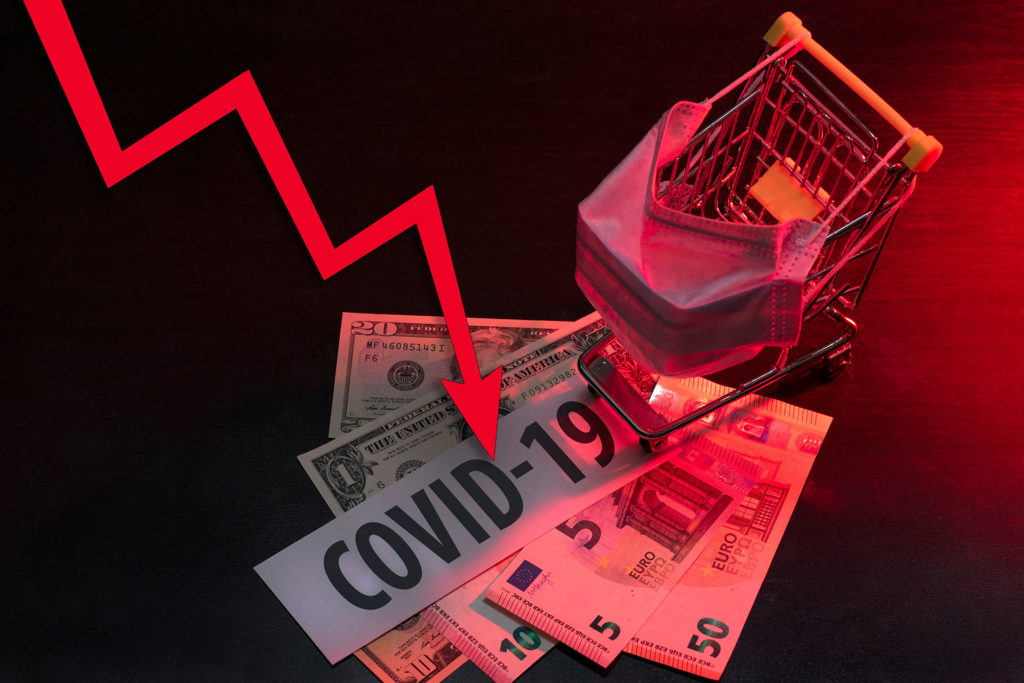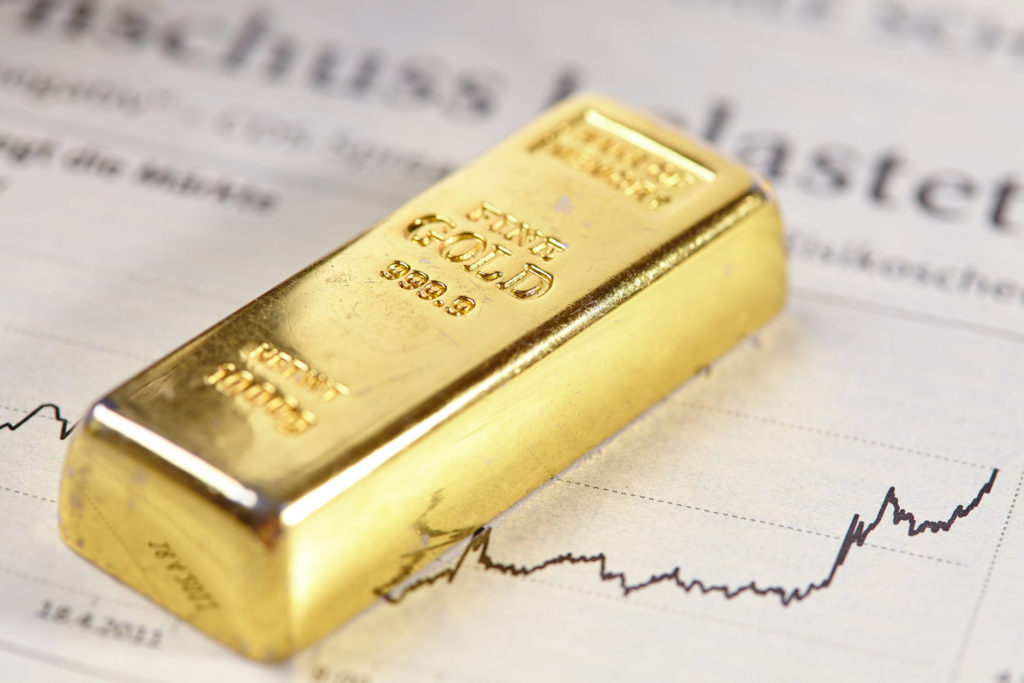Irish depositors are being hit with zero and in some cases negative interest rates on their saving held in Irish banks. This is causing them to seek alternate methods of protecting their finances which is driving more and more to opt for the safety of gold.
The interest rate at which Irish banks can lend to the ECB (The European Central Bank) has been slashed over the past number of years from 3.75% down to -0.50%.
This has been done to spur economic growth in the EU as it also lowers the interest rate at which the ECB lends money into the market and influence the rate at which banks lend to each other.
The strategy is that lower interest rates should encourage borrowing and spending rather than saving and as a result benefit the economy.
Prior to Covid-19 the European economy was already faltering and interest rates had already been lowered and economic stimulus had been increased.
The global pandemic has caused the printing presses of the World’s central banks, to go into overdrive in an attempt to avoid another financial crash greater than that seen in 2008.

What does this mean for the average Irish deposit holder?
If you have a deposit account that has a zero-interest rate applied to it, you will earn no interest at all, zero, zilch! This used to be what you would expect from your current account as you had instant access to your funds when you needed them.
With term deposits, on the other hand, you earned an interest rate that was generally at least greater than the prevailing inflation rate. Not anymore.
However, if you have a negative interest rate applied to your account, you are in an even worse situation because when your deposit matures, you will receive less money back than you placed on deposit in the first place! You are now being charged for the privilege of placing your money on deposit at your bank.
It is important to be aware that not all banks are charging negative interest rates now and of those that are, most of them have applied a threshold above which a negative interest rate is charged. For example, AIB has a threshold of €3m above which they are charging a negative rate.
Bank of Ireland’s threshold is €2.5m but both are expected to drop to €1m very soon. While this is most likely to impact companies and pension funds, your typical Irish depositor is unlikely to be affected by either of these thresholds however, a further lowering of the thresholds is to be expected.
In addition to threshold, some banks are implementing limits or caps on how much an account can hold on deposit which is sure to impact a wider range of savers, with even the Credit Unions getting in on the act. Caps as low as €10,000 per account are being applied in some Credit Union branches.
Not only does this mean that earning a return on your savings is no longer possible, it also is putting upward pressure on the prices of goods and services. Inflation is starting to rise.
This is a story that is happening across the globe.
The combination of zero, negative interest rates and inflation is forcing people to seek alternate homes for their savings. This has caused, among other things a significant rise in stock markets, and property prices.
This is highly unusual given that it is against the backdrop of a global pandemic and weak economic growth! Investors and savers are understandably nervous.
That is why they are turning to gold.
Gold has historically performed well in times high inflation or global uncertainty, and we are now seeing both happening at once.
Inflation erodes the value of your euro as it buys less and less goods and services each year. Global uncertainty due to Covid-19 has caused Governments and Central Banks to pump money into the system at a greater rate than at any time in history. This is fuelling inflation.

“We are seeing a significant increase in the number of new investors in the gold market that are becoming ever more aware and ever more concerned about protecting their financial nest egg. People are really starting to notice the effects of inflation as prices at the checkout and particularly in their energy bills, start to rise.
They are looking at the rising cost of living and then at their savings and seeing their savings are not appreciating enough to cover the widening gap.
This is where, over the long-term gold plays a role. Over the last 20 years, inflation in Ireland has risen by 1.6% per year (CSO). Over the same period, gold has risen by 8.5% per annum. As an inflation hedge, gold has the historical credentials that other investments do not. That is why more and more investors are now learning how to invest in gold” GoldCore CEO Stephen Flood
GoldCore is a precious metals broker that specialises in the purchase, sale and storage of physical gold and silver coins and bars for deliver by insured courier or storage in high security, specialised precious metal vaults around the world.
Founded in 2003, GoldCore deals with the major precious metal’s refiners and Mints around the world, including The Perth Mint of Western Australia and the Royal Mint in the UK. GoldCore executives appear regularly as industry expert guests on radio and television, including CNN, CNBC, BBC, RTE and Bloomberg TV.











